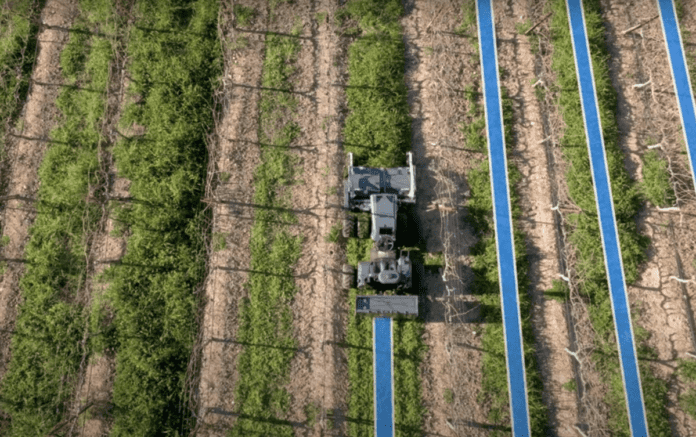The agriculture industry is currently facing a significant labor shortage, a challenge that is expected to worsen in the coming years. One of the main reasons for this shortage is the heavy reliance on migrant labor, which may become even scarcer due to threats of mass deportations under the Trump administration. This looming crisis has sparked concerns among industry experts about the potential impacts on the food supply chain and the ability of farmers to feed the country.
In addition to the migrant labor issue, the average age of farmers is increasing, with the current average age being 58. Many older farmers do not have succession plans in place, as younger generations from farm families often show little interest in continuing the family business. This lack of interest could result in the sale of many farms to developers within the next decade, further exacerbating the labor shortage in the industry.
However, there is hope that new technology could help make farming jobs more attractive and address the labor shortage. Tim Bucher, CEO of Agtonomy, suggests reframing farming jobs to appeal to workers with skills gained from unexpected areas, such as video games. By adjusting job descriptions to emphasize “video game experience” and creating new job titles like “AgTech Operator,” farmers have been able to attract a wider pool of candidates with diverse skills.
At the recent CES Ag Tech Summit, Bucher shared a success story of a farming partner who was able to overcome a crippling labor shortage by hiring ag tech operators with no prior tractor experience but strong video game skills. This innovative approach demonstrates how skills from seemingly unrelated fields can be valuable assets in reimagining labor-intensive industries like agriculture.
Furthermore, technology such as AI and automation is playing a crucial role in transforming the agriculture industry and helping farms operate more efficiently. AI, autonomous equipment, precision agriculture tools, and data-driven decision-making platforms are enabling farmers to better manage their operations and adapt to the challenges posed by climate change. Jacqueline Heard, CEO of Enko, likened the impact of AI and data-driven tools to that of the tractor, which revolutionized agriculture in the past.
In conclusion, the agriculture industry is at a critical juncture, facing significant challenges with labor shortages and an aging workforce. However, by embracing new technologies and innovative approaches to recruiting and training workers, farmers can overcome these obstacles and ensure the sustainability of the industry in the years to come. AI, automation, and data-driven tools are not only attracting new talent to the industry but also revolutionizing the way farms operate and adapt to a rapidly changing environment.




